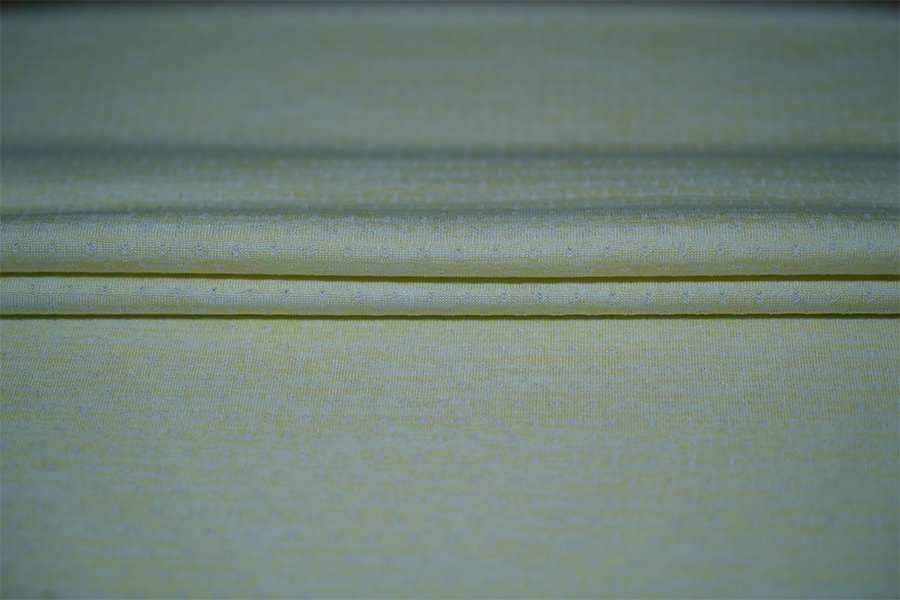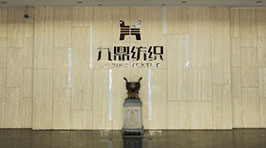
What are the advantages of using polyester fabric in sportswear, and how does it contribute to performance, comfort, and sustainability in athletic apparel?
1. Moisture Wicking: Polyester fabric is known for its excellent moisture-wicking properties. It effectively pulls moisture away from the skin and allows it to evaporate quickly, keeping athletes dry and comfortable during intense physical activities. This moisture management capability helps regulate body temperature and prevents the accumulation of sweat, reducing the risk of overheating and discomfort.
2. Lightweight and Breathable: Polyester fabric is inherently lightweight, making it suitable for sportswear where freedom of movement is crucial. The fabric's breathable nature allows air circulation, enhancing ventilation and promoting airflow. This breathability helps to maintain a comfortable body temperature, reducing the chances of excessive sweating and improving overall performance.
3. Quick Drying: Another advantage of polyester fabric is its quick-drying property. The fabric efficiently releases moisture and dries rapidly, allowing athletes to stay dry and comfortable even during intense workouts or in wet conditions. Quick-drying properties also facilitate convenience for athletes who require frequent washing and fast turnaround times between training sessions or competitions.
4. Durability and Strength: Polyester fabric is known for its durability and strength, making it suitable for the demanding nature of sportswear. The fabric can withstand rigorous use, frequent washing, and abrasion, ensuring longevity and retaining its shape even after prolonged periods of wear. This durability contributes to the longevity of sportswear garments, reducing the need for frequent replacements.
5. Versatility and Design Freedom: Polyester fabric offers versatility in terms of design and customization. It can be easily dyed, printed, or textured to achieve various visual effects and aesthetics. This allows sportswear designers to create vibrant, eye-catching designs and patterns, enhancing brand identity and appeal.
6. Sustainability: Polyester fabric has made significant strides in terms of sustainability. Manufacturers are increasingly using recycled polyester, derived from post-consumer plastic bottles or industrial waste, as an eco-friendly alternative. The use of recycled polyester reduces the reliance on virgin resources, lowers energy consumption, and helps divert plastic waste from landfills. Additionally, polyester fabrics can be recycled and repurposed, contributing to a circular economy in the textile industry.

2. Lightweight and Breathable: Polyester fabric is inherently lightweight, making it suitable for sportswear where freedom of movement is crucial. The fabric's breathable nature allows air circulation, enhancing ventilation and promoting airflow. This breathability helps to maintain a comfortable body temperature, reducing the chances of excessive sweating and improving overall performance.
3. Quick Drying: Another advantage of polyester fabric is its quick-drying property. The fabric efficiently releases moisture and dries rapidly, allowing athletes to stay dry and comfortable even during intense workouts or in wet conditions. Quick-drying properties also facilitate convenience for athletes who require frequent washing and fast turnaround times between training sessions or competitions.
4. Durability and Strength: Polyester fabric is known for its durability and strength, making it suitable for the demanding nature of sportswear. The fabric can withstand rigorous use, frequent washing, and abrasion, ensuring longevity and retaining its shape even after prolonged periods of wear. This durability contributes to the longevity of sportswear garments, reducing the need for frequent replacements.
5. Versatility and Design Freedom: Polyester fabric offers versatility in terms of design and customization. It can be easily dyed, printed, or textured to achieve various visual effects and aesthetics. This allows sportswear designers to create vibrant, eye-catching designs and patterns, enhancing brand identity and appeal.
6. Sustainability: Polyester fabric has made significant strides in terms of sustainability. Manufacturers are increasingly using recycled polyester, derived from post-consumer plastic bottles or industrial waste, as an eco-friendly alternative. The use of recycled polyester reduces the reliance on virgin resources, lowers energy consumption, and helps divert plastic waste from landfills. Additionally, polyester fabrics can be recycled and repurposed, contributing to a circular economy in the textile industry.












 中文简体
中文简体 English
English Español
Español русский
русский













